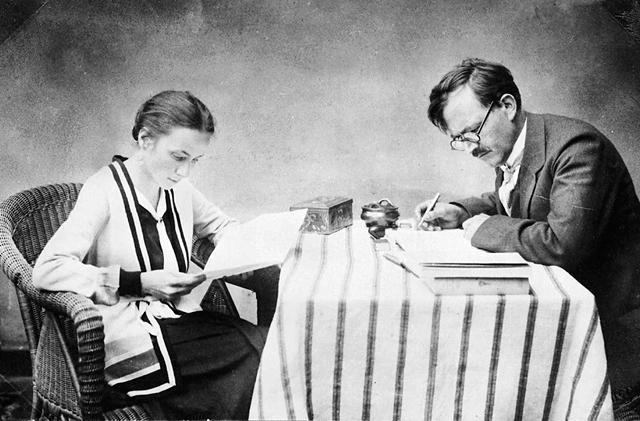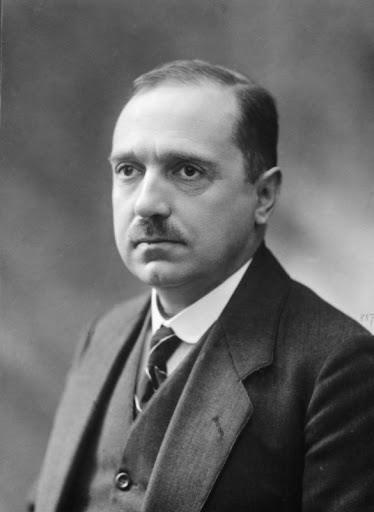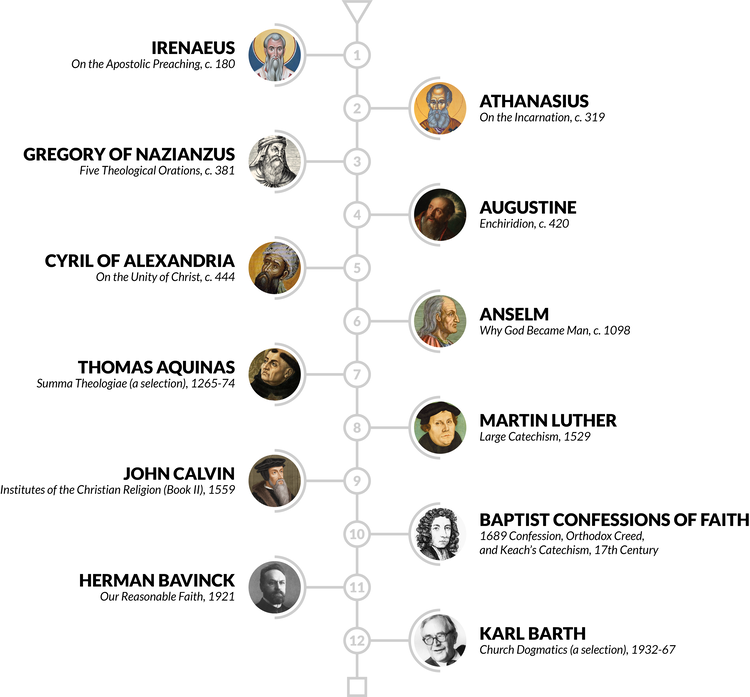 Selection: The Church Dogmatics II/1:12-21, §25.1 “Man before God.”
Selection: The Church Dogmatics II/1:12-21, §25.1 “Man before God.”
When Barth speaks of ‘man before God’ he means the person who does in fact stand before God, the one in whom the knowledge of God has been realised or fulfilled. How does this occur, that someone knows God and therefore stands before God? Barth’s answer to this question is twofold: the person has been encountered by God, and thereby knows and acknowledges God (31). This knowledge is itself, faith.
Faith is the total positive relationship of man to the God who gives Himself to be known in His Word. It is man’s act of turning to God, of opening up his life to Him and of surrendering to Him. It is the Yes which he pronounces in his heart when confronted by this God, because he knows himself to be bound and fully bound. It is the obligation in which, before God, and in the light of the clarity that God is God and that He is his God, he knows and explains himself as belonging to God. But when we say that, we must at once also say that faith as the positive relationship of man to God comes from God Himself in that it is utterly and entirely grounded in the fact that God encounters man in the Word which demands of him this turning, this Yes, this obligation; becoming an object to him in such a way that in His objectivity He bestows upon him by the Holy Spirit the light of the clarity that He is God and that He is his God, and therefore evoking this turning, this Yes, this obligation on the part of man. It is in this occurrence of faith that there is the knowledge of God; and not only the knowledge of God, but also love towards Him, trust in Him and obedience to Him (12).
The realisation of the knowledge of God in human life has, therefore, this dual aspect: the act of God making himself an object for human contemplation, and the corresponding and subsequent human act of recognition and commitment—faith. In the recognition of God as God—something possible only in the illuminating work of the Holy Spirit—the person finds themselves confronted, encountered, bound in such a way that they respond to this new reality by turning, opening, and surrendering themselves to this God. They stand before God.
Biblical faith lives upon the objectivity of God. In one way or another, God comes into the picture, the sphere, the field of man’s consideration and conception in exactly the same way that objects do, uniting Himself to man, distinguishing Himself from him, evoking by His existence and nature man’s love, trust and obedience; but before and in and above all this, bearing witness to Himself by establishing from His side this orientation of man, this uniting and distinguishing. Biblical faith stands or falls with the fact that it is faith in God (13).
In confronting the human creature God reveals himself—as Another—thereby distinguishing himself from the person and yet also uniting himself to them, and evoking a corresponding reaction from the person. Genuine faith will include love, trust, and obedience but prior to these responses it is knowledge of God given in the act of revelation itself. Thus, faith is knowledge of God and conversely, the knowledge of God is faith. To have faith is to know God; to know God is to have faith. This, too, is an epistemological claim: to have faith is a particular way of knowing, similar to other forms of human knowledge of other objects, but also unique because this object of knowledge is unique, distinct from all other objects of human knowledge.
In the Bible faith means sanctification. And in the Bible sanctification is the execution of a choice—of particular places, times, men, events or historical sequences. Where this sanctification and therefore this choice occurs, there, according to the Bible, knowledge of God occurs also. The foundation and subject of this sanctification and choice is, however, the object of scriptural faith, electing and consequently sanctifying Himself in glory. And this object is God, the one who is certainly an object, but the utterly unique object of a unique human knowledge; . . . What happens throughout the Word of God is the history of this choice and sanctification. It is this history that we recount; and our own faith only comes into play in so far as we keep to this history (15-16).
God reveals himself, so making himself an object for human knowledge, but does so by sanctifying himself amongst all other objects, and by electing, calling, and sanctifying those to whom he is revealed. This setting apart which occurs via revelation, is faith.
That God can make himself an object for human knowledge is grounded in the primary objectivity in which God is immediately objective to himself in all eternity in the intra-trinitarian relations.
We call this the primary objectivity of God, and distinguish from it the secondary, i.e., the objectivity which He has for us too in His revelation, in which He gives Himself to be known by us as He knows Himself. It is distinguished from the primary objectivity, not by a lesser degree of truth, but by its particular form suitable for us, the creature. God is objectively immediate to Himself, but to us He is objectively mediate. . . . First to Himself, and then in His revelation to us, He is nothing but what He is in Himself (16).
God knows himself in all eternity directly and immediately in the relationship of the Father to the Son and the Son to the Father. In his revelation to us, however, God is known indirectly and mediately, for he appears to us not directly in his naked glory “but clothed under the sign and veil of other objects different from Himself” (16). Thus, the recipient of this revelation stands before God in faith, truly knowing God and trusting God though only indirectly. God cannot be identified with the media of revelation: he remains ever distinct from them but also utilises them as the vehicle of his revelation and through them gives himself to be known.
At bottom, knowledge of God in faith is always this indirect knowledge of God, knowledge of God in His works, and in these particular works—in the determining and using of certain creaturely realities to bear witness to the divine objectivity. What distinguishes faith from unbelief, erroneous faith and superstition is that it is content with this indirect knowledge of God . . . it is grateful really to know the real God in His works. . . . But it also holds fast to the particularity of these works. It does not arbitrarily choose objects to set up as signs, in that way inventing a knowledge of God at its own good pleasure. It knows God by means of the objects chosen by God Himself. It recognises and acknowledges God’s choice and sanctification in the operation of this knowledge (17-18).
In all this Barth is interested in the nature of human faith as a response to God’s revelation and evoked by that revelation. Faith has its basis in God’s sovereign election—his subjectivity, while the church is the sphere of revelation. It is impossible for humanity to arrive at the knowledge of God independently, and nor may they decide for themselves how God may be known, or set up their own means to the knowledge of God. “We must seek Him where He Himself has sought us—in those veils and under those signs of His Godhead. Elsewhere He is not to be found” (18). The veils and signs of which Barth speaks are his works:
It is this God in action . . . He really stands before them; He really speaks to they; they really hear Him. But all this takes place, not in a direct, but in an indirect encounter. What direct confront them are the historical events, forms and relationships which are His work.
The Messiah, the promised Son of Abraham and David, the Servant of Yahweh, the Prophet, Priest and King has appeared; and not only as sent by God, but Himself God’s Son. Yet the Word does not appear in His eternal objectivity as the Son who alone dwells in the bosom of the Father. No; the Word became flesh. God gives Himself to be known, and is known, in the substance of secondary objectivity, in the sign of all signs, in the work of God which all other works of God serve to prepare, accompany and continue, in the manhood which He takes to Himself (19-20).
“Letting this be enough for oneself is not resignation but the humility and boldness of the man who really stands before God in faith, and in faith alone” (20).
 My latest essay has just been published at Religions, Vol. 13 No. 3 as part of a special issue concerning “Karl Barth’s Theology in a Time of Crisis” edited by Mark R. Lindsay. My essay examines how theology might proceed responsibly, in times of crisis. It explores Barth’s treatise Theological Existence Today, to understand Barth’s own response to the crisis confronting German Protestantism in the face of Hitler’s rise to power.
My latest essay has just been published at Religions, Vol. 13 No. 3 as part of a special issue concerning “Karl Barth’s Theology in a Time of Crisis” edited by Mark R. Lindsay. My essay examines how theology might proceed responsibly, in times of crisis. It explores Barth’s treatise Theological Existence Today, to understand Barth’s own response to the crisis confronting German Protestantism in the face of Hitler’s rise to power.

 Selection: The Church Dogmatics II/1:25-31, §25.1 “Man before God.”
Selection: The Church Dogmatics II/1:25-31, §25.1 “Man before God.”
